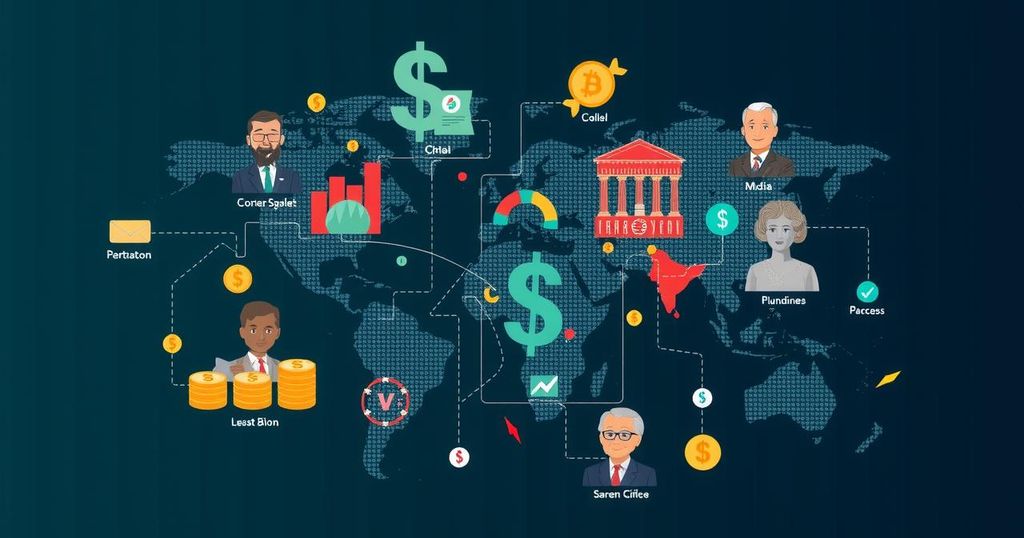Companies
AFRICA, AFRICA RENEWAL, BANKING, CARLOS LOPES, DEVELOPMENT, ECONOMIC GROWTH, IMF, INTERNATIONAL CONFERENCE ON FINANCING FOR DEVELOPMENT, INTERNATIONAL COOPERATION, KINGSLEY IGHOBOR, LO, LOPES, SEVILLE, SOUTH AFRICA, SUSTAINABLE DEVELOPMENT, UNITED NATIONS ECONOMIC COMMISSION FOR AFRICA, UNIVERSITY OF CAPE TOWN
Fatima Khan
0 Comments
Shaping an Inclusive Global Financial System: Insights from Carlos Lopes
Carlos Lopes discusses Africa’s financial challenges in preparation for the 2025 Conference in Spain, stressing that the continent’s debt issues are more about liquidity access than actual debt levels. He critiques the current debt outlook and credit ratings, emphasizing Africa’s need for systemic reforms in the global financial architecture to harness its growth potential through regulation and international cooperation.
In an insightful interview, Carlos Lopes, the former Executive Secretary for the United Nations Economic Commission for Africa, discusses Africa’s financial landscape as he prepares for the 4th International Conference on Financing for Development set for 2025 in Spain. Lopes criticizes the region’s debt narrative, emphasizing that it is more of a liquidity access issue rather than a mere debt problem. He asserts that African economies struggle with high-interest rates and inadequate financing due to unfavorable credit ratings assigned universally to countries within the continent, often ignoring the specific merits of individual investments.
Lopes argues that Africa’s total debt of $1.1 trillion, relative to the sovereign debt levels elsewhere, is manageable. He challenges the dominant narrative around debt reforms in global financial architecture by advocating for a more comprehensive approach that includes regulating credit rating agencies, reconsidering Basel III banking regulations, and recognizing Africa’s potential in climate solutions, demographics, and technology. Much room for improvement remains in domestic resource mobilization as Lopes highlights the 17% fiscal pressure in Africa, a figure that lags behind the global average but shows progress amid external challenges.
Discussing illicit financial flows, Lopes emphasizes the necessity for collective efforts, as African states grapple with challenges exacerbated by international contract structures. He remains optimistic about Africa’s economic trajectory, noting that nine out of twenty of the fastest-growing economies are African, notwithstanding external pressures. Looking ahead to the conference, he stresses that Africa should focus on reforming international taxation systems and adapting to emerging trends such as cryptocurrencies to ensure inclusive participation in the global financial system.
The conversation arises from an imperative need for Africa to address its financial framework in a global context. With a looming debt narrative that overshadows genuine opportunities for economic growth, highlighted by the impacts of credit ratings and investment perceptions, Lopes brings forth the crucial topics that will shape discussions at upcoming international forums. His expertise sheds light on how Africa can better leverage its resources, demographic advantages, and the technology landscape to engage more actively in global finance while addressing linear perceptions of its economic health.
The insights provided by Carlos Lopes emphasize the complexities surrounding Africa’s financial challenges, specifically regarding debt and liquidity access. He advocates for systemic reforms in the global financial architecture, focusing on the regulatory frameworks that govern ratings and access to capital. Lopes highlights the critical need for Africa to take an active role in shaping its financial future, stressing the importance of prioritizing international taxation and adaptation to new financial technologies to create a more inclusive financial landscape.
Original Source: www.un.org




Post Comment